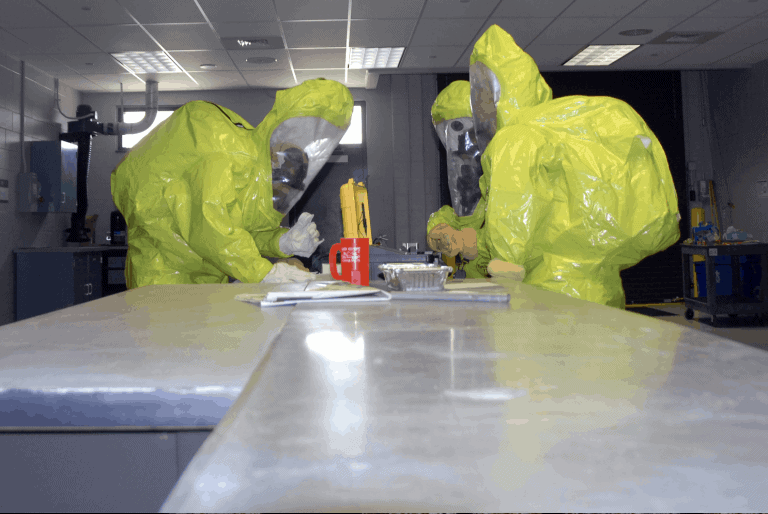Leadership as a Soft Skill
Mastering leadership as a soft skill involves guiding, inspiring, and fostering collaboration for success. Effective leaders communicate clearly, make informed decisions, and show empathy. Developing your skills means reflecting, learning, and enhancing your emotional intelligence. Leadership impacts morale, innovation, and trust in the workplace. Understanding team dynamics and leading through change are essential. Cultivating your leadership presence requires self-awareness and continuous learning. The future of leadership demands adaptability, emotional intelligence, and diverse environments. Learn more about enhancing your leadership abilities for a successful impact.
Key Takeaways
- Leadership involves communication, empathy, and decision-making skills.
- Soft skills like active listening and emotional intelligence are crucial.
- Effective leaders inspire, motivate, and guide teams towards success.
- Soft skills enhance team dynamics, collaboration, and innovation.
- Leadership as a soft skill emphasizes interpersonal relationships and emotional intelligence.
The Essence of Leadership
Understanding the essence of leadership is essential for fostering growth and driving success in any organization. The core of leadership lies in the ability to inspire, motivate, and guide individuals towards a common goal. To develop effective leaders, organizations must implement robust leadership development strategies. These strategies encompass various activities such as mentorship programs, leadership training workshops, and opportunities for hands-on experience.
Effective leadership development strategies focus on honing essential skills like communication, decision-making, and emotional intelligence. By investing in these areas, organizations can cultivate a strong leadership pipeline that guarantees continuity and success. Additionally, fostering a culture that values continuous learning and feedback is pivotal for developing resilient and adaptable leaders.
Leadership isn't just about holding a position of authority; it's about serving as a role model, a mentor, and a visionary. It requires empathy, vision, and the ability to navigate challenges with grace and determination. By understanding the essence of leadership and implementing thorough leadership development strategies, organizations can nurture a cadre of leaders who'll drive innovation, inspire others, and steer the company towards sustained growth and success.
Traits of Effective Leaders
As you explore the traits of effective leaders, consider the importance of strong communication skills in fostering understanding and collaboration within a team.
Reflect on the pivotal role decision-making abilities play in guiding a group towards success and overcoming challenges.
Embrace empathy as a tool for building trust and creating a supportive environment where individuals feel valued and heard.
Communication Skills
Developing strong communication skills is pivotal for effective leaders to inspire, influence, and connect with their teams. As a leader, active listening and being attuned to body language are essential components of effective communication. By mastering these skills, you can foster trust, build stronger relationships, and enhance team collaboration.
Here are key aspects to ponder:
- Active Listening: Show genuine interest and focus when team members speak.
- Body Language: Be mindful of your gestures, posture, and facial expressions.
- Clarity: Clearly articulate your thoughts and ideas to avoid misunderstandings.
- Empathy: Understand and acknowledge the emotions of your team members.
- Feedback: Provide constructive feedback and actively seek input from your team.
Decision-Making Abilities
To make effective decisions as a leader, it's important to assess all available information and consider the potential impact on your team and organization. Strategic thinking plays a vital role in this process, as it involves analyzing the situation from different angles and predicting possible outcomes.
As a leader, your problem-solving skills will be put to the test when faced with complex issues or uncertainties. It's crucial to approach decision-making with a clear and rational mindset, weighing the risks and benefits of each option.
Empathy and Understanding
Understanding the emotions and perspectives of your team members is a key component of effective leadership. By practicing empathy in leadership, you can create a more cohesive and productive work environment.
Here are some ways to enhance your understanding of others:
- Actively listen to your team members without judgment.
- Put yourself in their shoes to see situations from their perspective.
- Show genuine care and concern for their well-being.
- Acknowledge and validate their feelings and experiences.
- Adapt your communication style to meet their individual needs.
Developing Leadership Skills
Your journey towards enhancing your leadership skills begins with embracing the qualities that set great leaders apart. Leadership development is a continuous process that involves self-reflection, learning from experiences, and actively seeking opportunities to grow. To become a more effective leader, you must first understand your strengths and weaknesses, as this self-awareness forms the foundation for personal growth and improvement.
Effective leadership isn't just about giving orders; it's about inspiring and empowering those around you to achieve common goals. Communication plays a crucial role in leadership development. By honing your communication skills, both verbal and non-verbal, you can convey your vision clearly and build strong relationships based on trust and respect.
Furthermore, cultivating emotional intelligence is key to developing leadership skills. Understanding your emotions and those of others enables you to navigate interpersonal dynamics with empathy and authenticity. By investing time and effort into these areas, you can enhance your leadership capabilities and make a positive impact on those you lead.
Impact of Leadership in the Workplace
In the dynamic landscape of the workplace, effective leadership serves as the cornerstone for fostering a culture of collaboration, innovation, and productivity. As a leader, your impact on the workplace is profound, influencing both employee morale and organizational success. Here are key points to ponder:
- Boosting Employee Morale: Your leadership style directly impacts how motivated, engaged, and satisfied your team members feel. By demonstrating empathy, providing support, and recognizing achievements, you can greatly enhance employee morale.
- Driving Organizational Success: Strong leadership is a pivotal factor for achieving organizational goals. Your ability to inspire, guide, and align your team towards a common vision plays an essential role in the overall success of the organization.
- Fostering Innovation: Encouraging a culture of open communication, risk-taking, and creativity empowers employees to think outside the box and contribute new ideas, driving innovation within the organization.
- Improving Productivity: Effective leadership involves setting clear expectations, providing feedback, and removing obstacles that hinder productivity. By creating a conducive work environment, you can enhance overall team performance.
- Building Trust: Trust is the foundation of strong leadership. By being transparent, consistent, and reliable, you can cultivate trust among team members, leading to stronger relationships and better collaboration.
Leadership and Team Dynamics
As a leader, you understand the critical importance of team synergy in achieving success.
When roles are clearly defined, team members can work more efficiently towards common goals.
Team Synergy Importance
Team synergy is the cornerstone of effective leadership and successful team dynamics, fostering collaboration and productivity among members. When team synergy is prioritized, it creates a harmonious work environment where individuals can thrive collectively. Here are some key aspects highlighting the importance of team synergy:
- Enhanced Communication: Encourages open and transparent dialogue.
- Increased Innovation: Fosters creativity and the sharing of diverse ideas.
- Boosted Morale: Strengthens team spirit and motivation.
- Improved Problem-solving: Enables efficient resolution through combined efforts.
- Heightened Trust: Builds a foundation of reliability and mutual respect.
Role Clarity Enhances
To cultivate a more cohesive and efficient team environment, ensuring clarity in roles enhances both leadership effectiveness and overall team dynamics. When team members have a clear understanding of their roles and responsibilities, it enhances performance and fosters teamwork. Role clarity minimizes confusion, reduces conflicts, and streamlines decision-making processes. By defining roles, individuals can leverage their strengths, collaborate effectively, and complement each other's skills. This clarity creates a sense of ownership and accountability within the team, leading to increased productivity and job satisfaction. To illustrate further, consider the following table:
| Benefits of Role Clarity | Impact on Team Dynamics | Resulting Outcomes |
|---|---|---|
| Reduces Confusion | Enhanced Collaboration | Increased Productivity |
| Streamlines Decision-Making | Improved Communication | Higher Job Satisfaction |
Communication Fosters Collaboration
Effective communication within a team fosters collaboration, driving synergy and productivity in achieving common goals.
Team building is enhanced when individuals communicate openly, sharing ideas and feedback. Trust building occurs as team members feel heard and respected through clear communication channels.
Misunderstandings are minimized, reducing conflicts and promoting a positive team environment. Encouraging active listening and providing regular updates help make certain that everyone is on the same page, working towards the team's objectives.
Leading Through Change
Traversing through change requires a blend of adaptability and foresight. Change management isn't just about implementing new processes; it's about leading individuals through the uncertainties that change brings. As a leader, practicing adaptive leadership is critical in steering through the turbulent waters of change. It's about being flexible, open to new ideas, and able to pivot when necessary.
During times of change, it's vital to communicate openly and transparently with your team. Share the reasons behind the changes and how everyone fits into the bigger picture. Listen to their concerns, address them, and involve them in the decision-making process whenever feasible. This inclusive approach fosters trust and empowers your team to embrace the changes ahead.
Cultivating Leadership Presence
Crafting a strong leadership presence involves embodying authenticity, engaging communication, and a clear vision that inspires others to follow. To cultivate your leadership presence and increase your influence, focus on the following:
- Self-Awareness: Understand your strengths, weaknesses, and values to lead authentically.
- Communication Skills: Develop the ability to articulate your ideas clearly and listen actively to others.
- Emotional Intelligence: Learn to manage your emotions effectively and empathize with the feelings of those around you.
- Continuous Learning: Commit to personal development and growth through seeking feedback and expanding your knowledge.
- Confidence and Resilience: Build confidence in your decisions, stay resilient in the face of challenges, and inspire confidence in your team.
The Future of Leadership
As we navigate the ever-evolving landscape of leadership, it's essential to anticipate and adapt to the changing trends and challenges that will shape the future of how we lead. Leadership evolution is a continuous process, requiring leaders to embrace new ideas, technologies, and ways of working. In the future, successful leaders will need to focus on honing their emotional intelligence, fostering diverse and inclusive environments, and mastering the art of effective communication.
New leadership trends are emerging, emphasizing the importance of authenticity, adaptability, and transparency. Leaders will be expected to lead with integrity, inspire trust, and demonstrate a genuine commitment to the well-being of their teams. Collaboration and teamwork will become even more critical as organizations navigate complex global challenges and rapid technological advancements.
To thrive in the future of leadership, you must be willing to embrace change, learn continuously, and cultivate a growth mindset. By staying agile and open-minded, you can position yourself as a forward-thinking leader who can navigate uncertainty with confidence and resilience.
Conclusion
As you continue to hone your leadership skills, remember that leadership is like a garden that needs constant care and attention.
Just like a seed grows into a beautiful flower with nurturing and guidance, your leadership abilities will flourish with practice and dedication.
Embrace the challenges that come your way, for they're opportunities for growth.
Keep cultivating your leadership presence, and watch as you blossom into a strong and impactful leader in the future.








